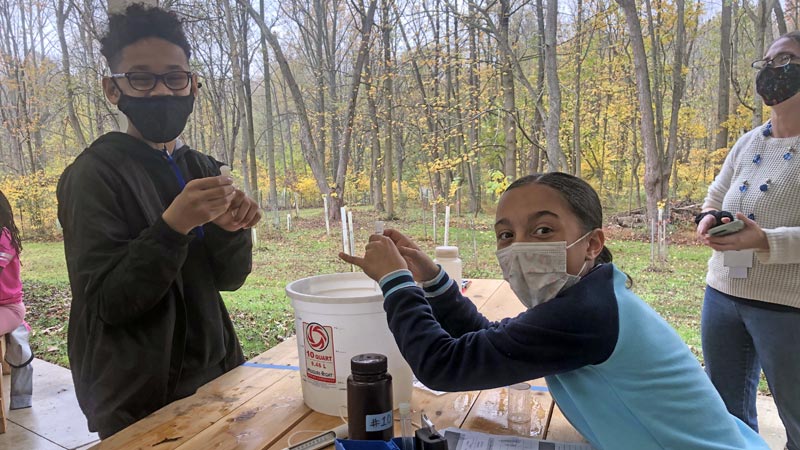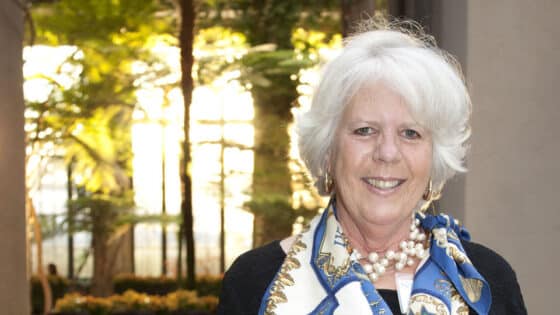“I want to be a scientist! I love nature!” fifth-grade students declared as they streaked through the streamside forest. Autumn leaves crunched under boots during one of the first in-person education programs at Stroud Water Research Center during the coronavirus (COVID-19) pandemic. These student anthems were music to the ears of Stroud Center educators, who had wondered when in-person education programs might return to the watershed.
Now, with time under the department’s belt following the onset of the pandemic, Stroud Center educators have returned to something they do very well: delivering high-quality outdoor education programming that is both safe and meaningful for participants.
“After offering many months of online student programs and teacher workshops, while also growing our virtual learning resources library, it was time to step back — lightly and literally — into the arena of outdoor learning,” says Tara Muenz, assistant director of education.
“Pulling from what we learned from serving on the national COVID-19 outdoor learning initiative and Pennsylvania’s Healthy Schools working group, and from deeply researching the best safety protocols and mapping scenarios with our team, we created new COVID-19 safety procedures and teaching methods for in-person education experiences.”
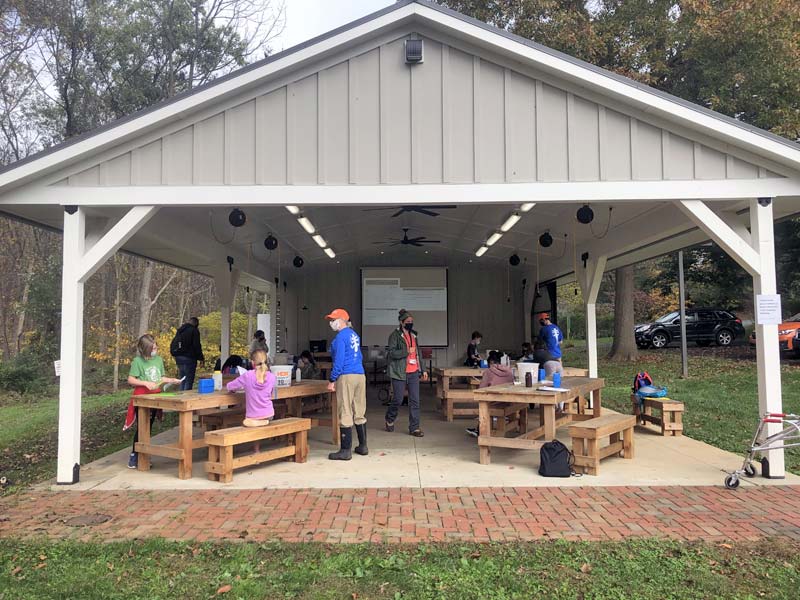
While following the best science available on COVID-19 precautions, the Stroud Center launched its first in-person program since the beginning of the pandemic in September 2020 during an on-the-water canoeing education program with local Scouts.
Since then, Stroud Center education programs have expanded to include programs on-site at the Stroud Center in its innovative outdoor classroom spaces, off-site at outdoor locations near participants, off-site for on-the-water canoeing education, or online virtual learning programs for all ages. Teachers are excited about these new opportunities to safely engage students in the outdoors.
Spotlight on Hambright Elementary School
“Early in the 2020-2021 school year, we received a program inquiry from Katie Harnish, a fifth-grade teacher at Hambright Elementary School in Lancaster, Pennsylvania. She was navigating a hybrid school environment and also getting excited to participate in Pennsylvania’s Trout in the Classroom program,” recalls Muenz.
Now more than ever, Harnish thought it important to reach out to the Stroud Center for help navigating her student’s discovery and research of freshwater ecosystems in an outdoor setting. “In the midst of the pandemic, taking the class outside is an opportunity to safely gather for meaningful hands-on, experiential learning,” says Harnish.
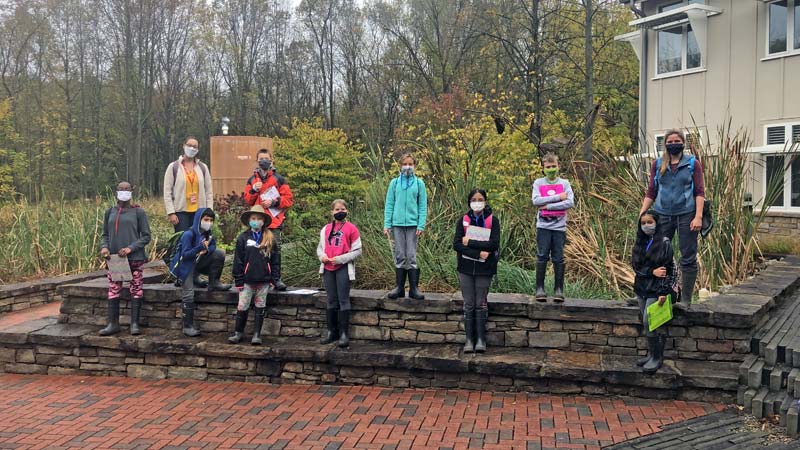
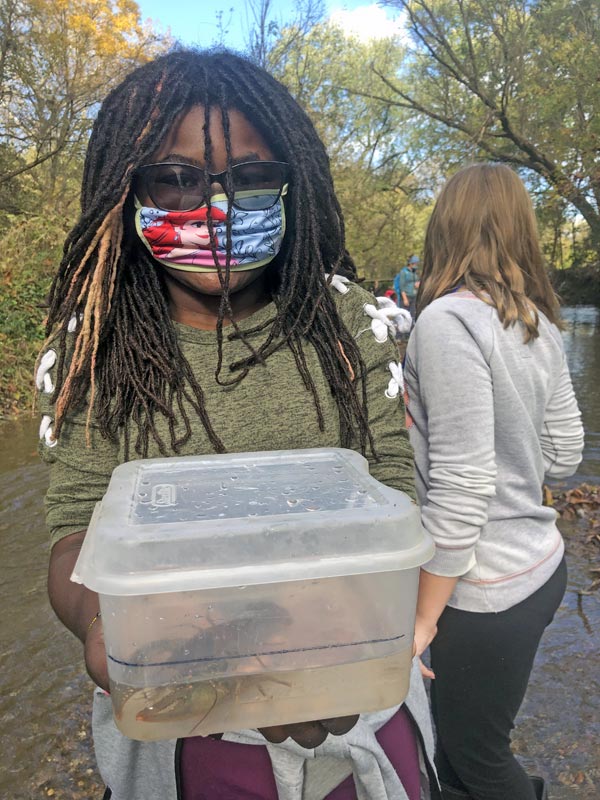
With support from a Lancaster County STEM Alliance grant and Pennsylvania’s Education Improvement Tax Credit donations to the Stroud Center, the Stroud Center was able to provide two in-person stream health study programs for Hambright Elementary: an initial experience at the Stroud Center, and a second at a park local to the school and Little Conestoga Creek, where the students hope to release their trout in the spring. With field notebooks in hand, students explored whether the Little Conestoga is healthy enough for the trout to call it home.
“The Stroud Center created a safe, physically-distanced experience that allowed my students to explore, learn, and have lots of fun while maintaining stringent health protocols,” says Harnish. “My students had a blast, and I could enjoy the time with them while Stroud Center educators took care of creating a safe and enriching learning environment.”
Schedule Your Program Now!
Visit Ms. Harnish’s blog site to learn more about Stroud Center education programming with Hambright Elementary School. To schedule a Stroud Center education program, please complete our request form!
